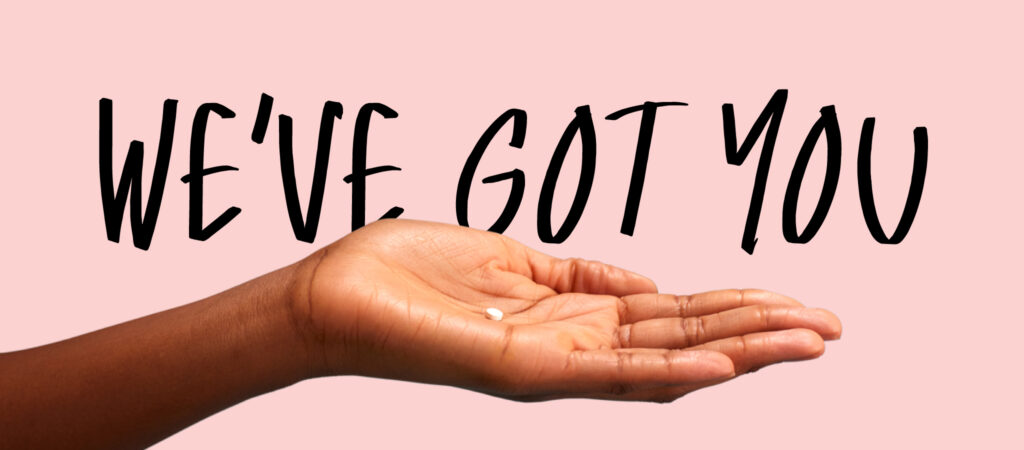Answers About the Supreme Court
Our CEO responds to patient questions about how changes to the Supreme Court could (and couldn't) affect birth control access.
Many of you have reached out to our registered nurse team, wondering how this week’s confirmation of Amy Coney Barrett to the Supreme Court could affect birth control access. I want you to know that we hear you, and we’re here for you.
It’s understandable that the replacement of liberal Justice Ruth Bader Ginsburg with a conservative Justice would lead to fear of a rollback of reproductive rights. I won’t get into the weeds on what it might mean more generally, but I am here to answer a few questions you might have.
Will birth control be affordable?
This month the Supreme Court will consider overturning the Affordable Care Act, and with another conservative Justice on the court it appears to be more of a possibility. Among its many provisions, the ACA says that insurance plans must cover contraception without a copay (although as of a Court decision in July employer-based plans can opt out of this if it goes against their religious beliefs). If the ACA is struck down, more insurance plans may cease covering birth control, although many will no doubt continue to fully cover it. A bigger issue would be that 21 million Americans could lose health insurance coverage altogether if the law is overturned.
Birth control from Nurx costs as little as $0 with insurance or $15 per month without insurance.
Thankfully, for those who don’t have insurance there are highly effective, popular birth control pills that cost only $15 per month when you pay out of pocket If that is too much of a financial burden, you may be able to access free birth control through programs including BC Benefits, which is run by Bedsider and Power to Decide.
Could birth control become illegal?
Despite the more conservative makeup of the Supreme Court, there is close to zero reason to believe that birth control could become illegal. The right to birth control was secured for married people in the 1965 Griswold v, Connecticut case, and for unmarried people in the Eisenstadt v. Baird case in 1972. When questioned by Senators about her views on the subject, Justice Barrett pointed out that it’s “very, very unlikely” that the Supreme Court would hear a case challenging the legality of birth control, although she didn’t directly answer whether she supports the precedent set by the Griswold case. For birth control to become illegal in a state, the state legislature would have to pass a law banning it, the law would have to make its way to the Supreme Court, and a five justice majority would have to uphold the law.
But birth control being legal does not mean that it’s accessible for all who need it. State laws restrict birth control access in all sorts of ways, such as whether a pharmacist can refuse to fill your prescription based on their religious beliefs, to how many months of birth control insurance must cover at a time, to whether teens can receive birth control without parents’ permission. The lawmakers we elect, especially at the state level, and the judges they appoint, have big influence over our access to birth control and healthcare generally.
Would a potential overturn of Roe v. Wade change my birth control access?
While we don’t know what will happen in the future about Roe v. Wade, since birth control is not abortion, there is no need to fear that a roll back of abortion rights would impact birth control access. Potential changes to safe and legal abortion make me more grateful than ever for the advances we’ve made in birth control. When Roe was decided in 1973 the birth control pill was still not widely accessible and had a lot of side effects, and the birth control ring, patch, shot and implant didn’t exist at all. Now we have about 35 birth control pill formulas, 5 brands of IUDs, and two morning after pills, and of course with services such as Nurx there are fewer geographic, logistical, and financial barriers to birth control than ever before.
On that note, have you voted yet, or do you have your plan to vote? Your vote is your voice and I hope you raise it at the ballot box.
We’re always here for any of your questions — email us at [email protected].







